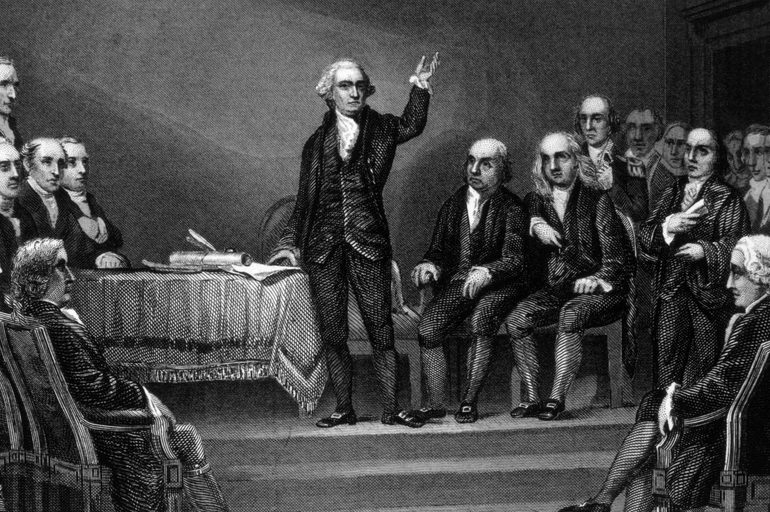
Gordon Wood’s Reflections on the Constitution and Slavery
At Northwestern University Law School’s Lincoln Lecture, endowed by my colleague Steve Calabresi, we had the great good fortune to hear a talk by Gordon Wood, the leading historian of the early American republic. He spoke about the Civil War and its relation to the founding and addressed two questions of particular importance to our understanding of the Constitution.
First, Professor Wood rejected the notion that the Constitution’s basic structure was animated by the issue of slavery. The fundamental fault line at the Constitutional Convention was between small and large states over the question of proportional representation, not between Southern and Northern States. That is what led to the Connecticut Compromise, which gives equal representation to every state in the Senate and in part to the Electoral College, which gives two additional electoral votes to every state in addition to votes proportional to their population.
It is true that as the North gained in population compared to the South, these compromises advantaged slave holding states. But at the time of the Convention both Northern and Southern statesmen thought slavery was on its last legs and would gradually disappear. Indeed, some southern states, like Virginia, had surprisingly liberal laws encouraging manumission. It turned out that for various reasons the consensus about the future was wrong. Because of the invention of the cotton gin and greater demand for goods that could be made in the plantation system, slavery was revived as an economically viable system.
Wood noted that that the Framers’ mistaken view of the future is an important point generally about history. We, of course, know how things turned out in the past, but to understand historical events in their context, we must discover the predictive assumptions of the participants long ago. In his view, the greatest lesson of modern history is that widespread assumptions about the future are often wrong. That recognition should make us temperamentally conservative, and warn us not to extrapolate too much from any particular contemporary event to a conclusion that some inevitable trend is taking hold.
Second, Wood also showed how the commercial republic that the Constitution facilitated doomed slavery. The North became intensely commercial and the equal dignity of labor was celebrated. In contrast to Europe and the South, manual labor was not looked down upon. Indeed, even William Evarts, a famous lawyer, argued that he was a laborer too, working hard at his craft, like any artisan. In Europe, in contrast, professionals tried to argue they were more like aristocrats than ordinary folk.
There was no place for slavery in the commercial republic, because there was nothing mean about working in the fields or doing the other chores that slaves performed. What was offensive was the officially hierarchical society that slavery created, one that offended the notions of equality proclaimed in the Declaration and realized in the commercial republic.
Many of our academic historians today tell a dismal tale of woe about our Founding, but Wood sees it whole with defects that do not blot out its real virtues. And foremost among these virtues is that the commercial society fostered by the Constitution sustained principles of market freedom and social equality that isolated and destroyed a very evil institution.
John O. McGinnis